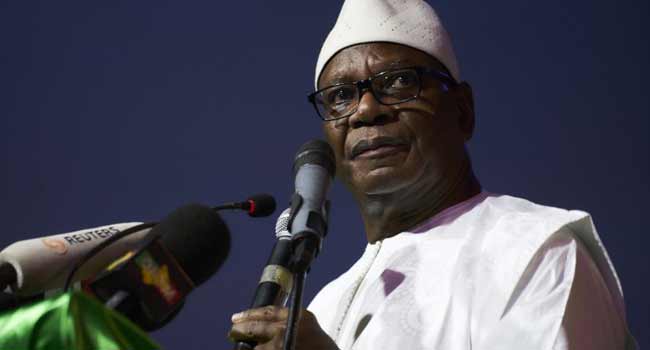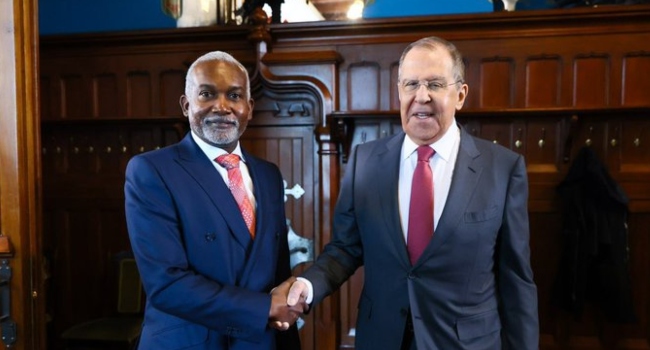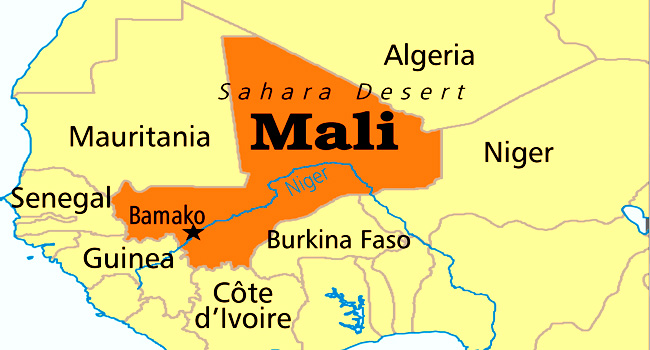
Michele CATTANI / AFP
Mali’s main protest group said that fresh anti-government demonstrations would take place Friday, rejecting the president’s latest attempts to appease the resurgent opposition in the fragile West African state.
It follows reforms floated by President Ibrahim Boubacar Keita on Wednesday evening meant to quell growing hostility to his government.
Thousands of people in the country of roughly 19 million protested on two occasions last month, urging Keita to resign over his perceived inability to resolve Mali’s economic woes and bloody jihadist conflict.
Adama Ben Diarra, a leader of the so-called June 5 opposition movement, told AFP they would protest following Friday’s prayers at around 2 pm (local) in the capital Bamako.
Earlier on Thursday Mahmoud Dicko, an influential imam who has emerged as one of the leaders of the movement, indicated a protest planned for Friday would go ahead.
Mali has been struggling to contain an Islamist insurgency that first emerged in the north in 2012, before spreading to the centre of the country and to neighbouring Burkina Faso and Niger.
Thousands of soldiers and civilians have been killed in the conflict to date, and hundreds of thousands of people have been forced from their homes.
On Wednesday evening, Keita proposed in a televised speech the appointment of new judges to the country’s constitutional court, which has been at the centre of controversy since April.
Following a long-delayed parliamentary poll in March — which Keita’s party won — the court overturned the provisional results for about 30 seats on April 29, in a decision that triggered protests in several Malian cities.
The move saw several members from Keita’s party elected to the parliament, and is viewed by many as having ignited Mali’s latest political crisis.
But Keita, who has been in power since 2013, suggested in his speech on Wednesday that new constitutional court judges could revisit that decision.
– ‘Failed speech’ –
The embattled president’s attempt to appease Mali’s growing opposition movement appears to have fallen on deaf ears.
One protest leader, Moussa Sinko Coulibay, tweeted Thursday the speech had “completely failed”.
“We massively invite women (to demonstrate). President IBK has not met our expectations,” the leader of the women’s wing of the protests, Fatoumara Oulare, said Thursday.
Malian singer Salif Keita also tweeted a call to protest on Friday.
The president is on increasingly shaky political ground as protests continue, alarming the international community which is keen to avoid Mali sliding into chaos.
The 75-year-old has mooted several reforms since demonstrations began in a bid to appease protesters, such as the formation of a new national unity government.
Last week, opposition leaders said they wanted to engage in dialogue with the president, dropping demands for his resignation in favour of the dissolution of parliament and the establishment of a transition government.
Since then, back-and-forth talks between the opposition and Keita have failed to achieve a breakthrough, however, with the president refusing to dissolve parliament.
-AFP




